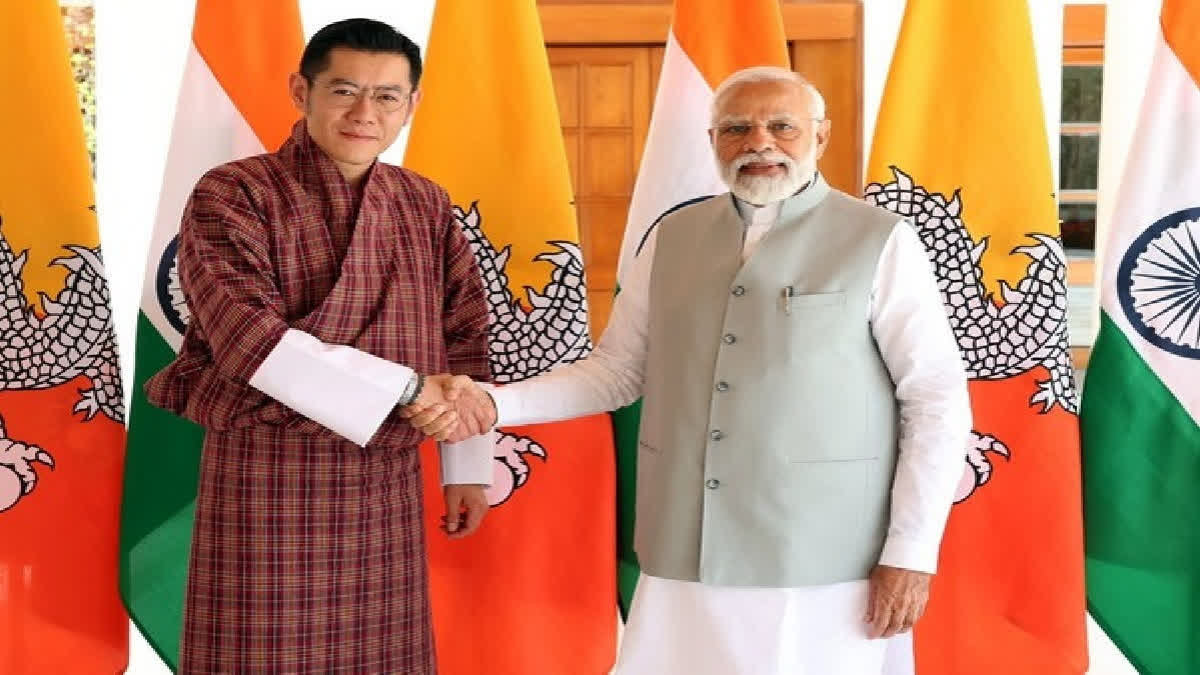New Delhi: With Bhutan King Jigme Khesar Namgyel Wangchuk announcing the development of the Gelephu Special Administrative Region (SAR) along the border with the northeastern state of Assam, what will be of interest are the implications for ties between India and China.
Wangchuk’s announcement of the project on December 18 on the occasion of Bhutan’s National Day came close on the heels of border conflict resolution talks between the Himalayan kingdom and China. Till the time of filing of this report, Beijing has refrained from making any comment on the project.
What is a point of interest is the timing of the King’s announcement of project. In October this year, Bhutanese Foreign Minister Tandi Dorji visited Beijing and held talks with his Chinese counterpart Wang Yi regarding border issues between the two countries. Immediately after this, Bhutan went into parliamentary election mode. King Wangchuk dissolved the elected government and appointed an interim government on November 1 ahead of the primary phase of the elections that was held on November 30.
On November 3, Wangchuk embarked on an eight-day visit to India starting from Assam. During the course of the visit, he held talks with Assam Chief Minister Himanta Biswa Sarma in Guwahati and Prime Minister Narendra Modi in New Delhi and met industrialists and entrepreneurs in Mumbai. And then, last Sunday, ahead of the final runoff of the parliamentary elections in his country scheduled for January 9 next year, the Monarch announced the development of the Gelephu project.
The project envisages connectivity of Bhutan with South and Southeast Asia and the Bay of Bengal region. The announcement of the project coincided with with the concurrent development of a 57.5-km railway line linking Kokrajhar in Assathe m with Gelephu. The Rs 10-billion project, a result of discussions between King Wangchuck and Modi during the former’s visit to Delhi, signifies a historic milestone in rail connectivity between the two nations.
Recognising the pivotal role of smooth trade in fostering economic growth, there are plans to upgrade the existing Land Customs station at Dadgiri in Assam to an Integrated Check Post. This, combined with infrastructure enhancements on the Bhutanese side at Gelephu, will pave the way for a more efficient and streamlined cross-border trade environment.
Why this latest development is of interest is that it comes amid Bhutan-China border negotiations. Bhutan and China do not share official diplomatic relations. China claims approximately 764 sq km in the northwestern and central regions of Bhutan. Initially, the dispute was part of border negotiations between India and China, but direct talks between China and Bhutan began in 1984. Since then, there have been over 24 rounds of border discussions and 12 rounds of expert-level meetings, primarily focusing on the Jakarlung and Pasamlung areas in north Bhutan, as well as the Doklam area in west Bhutan.
In June 2017, Bhutan protested to China against the construction of a road in the disputed territory of Doklam, at the meeting point of Bhutan, India and China. On the same day, the Bhutanese border was put on high alert and border security was tightened as a result of the growing tensions. A stand-off between China and India has endured since mid-June 2017 at the tri-junction adjacent to the Indian state of Sikkim after the Indian army blocked the Chinese construction of a road in what Bhutan and India consider Bhutanese territory. India views the Doklam plateau as Bhutanese territory, while China asserts that it is an extension of its Chumbi Valley, situated between Sikkim and Bhutan.
An official statement issued by the Chinese foreign ministry following the Bhutan-China border negotiations in October read: “The conclusion of boundary negotiations and the establishment of diplomatic relations between China and Bhutan fully serve the long-term and fundamental interests of the country and nation of Bhutan. China is ready to work with Bhutan in the same direction, seize the historic opportunity, complete this important process as soon as possible, and fix and develop China-Bhutan friendly relations in legal form.”
This is why the subsequent visit of Wangchuk to India and the announcement of the Gelephu SAR project assume significance.
